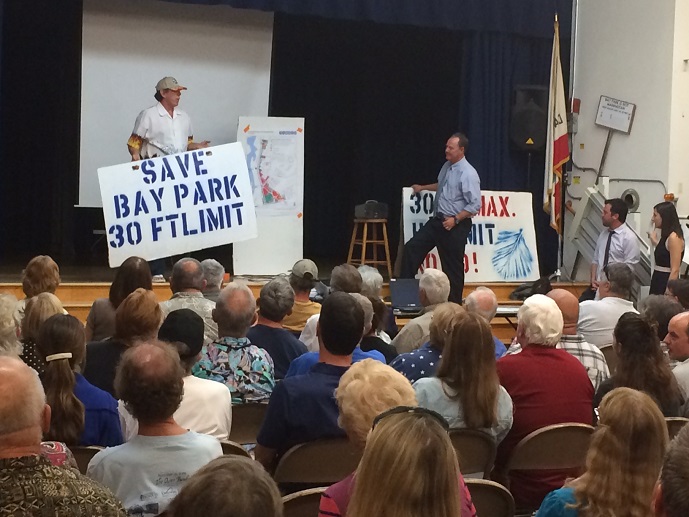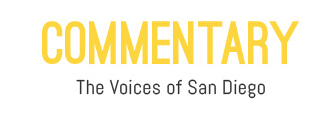Voters in the Dixie School District in north San Rafael are waiting a bit to mail in their ballots for next week’s Measure B parcel tax election on May 8.
As of Monday, only 2,600 ballots out of 13,666 registered district voters had been returned in the all-mail-in election, said Marin County Registrar of Voters Lynda Roberts. The mail-in registration deadline was April 23, Roberts said.
District residents may still register and vote — but they will need to fill out and submit their mail ballots in person at the Marin County Elections Department office at the Marin County Civic Center, 3501 Civic Center Drive, San Rafael.
“They can still register online, but for the actual voting, they will need to come in to the department,” Roberts said.
Measure B would extend the parcel tax for 12 years and add an $118 increase to the district’s existing $352 annual parcel tax — or a total of $470 a year. The rate would increase annually by no more than 3 percent — with the exact amount of the increase to be decided each year by public board of trustees’ vote. That is in contrast to most of the other parcel taxes in Marin that have automatic increases, also called “escalators.”
Nicki Mullen, co-chair of the “Yes on Measure B” group ForDixieStudents.org, said the community’s support has been “amazing.”
“Endorsements keep rolling in — we ran out of lawn signs because so many people wanted them — and the amount of volunteer support has been wonderful, both from parents at the schools and others in the community who realize the importance of Measure B,” Mullen said in an email.
Measure B critic Stephen Nestel, however, maintains he is in favor of a different tax system than the uniform flat rate parcel tax. The latter, he says, is unfair when it comes to large apartment complexes because they would only pay one flat tax per lot — even if they have multiple units.
“Our Marinwood Community Service District parks parcel tax is based on units and our fire tax is based on square footage,” Nestel, a Marinwood resident, said in an email. “It is very disappointing that Measure B supporters are telling people that (per square footage) is illegal.”
Nestel, meanwhile, is working with Mimi Willard, of the Coalition of Sensible Taxpayers, which is advocating a per-unit or a per-square-foot tax for area school districts instead of the flat rate parcel tax. As to the legal question, Nestel said he would not be backing a different tax system if he thought it might put the district in legal jeopardy.
“It is my wish that people carefully read the arguments and check the facts,” Nestel said. “Our position was not opposition to the tax, but to the fairness of the apartment loophole. Shouldn’t children in apartments have school funding too?”
According to Willard, both the fown of Fairfax and Ross Valley Paramedic Authority taxes are per-living-unit taxes, not parcel taxes.
“Fairfax’s special tax is $195 per living unit — so an apartment building owner pays by the number of units — a fourplex owner pays four times $195 — $780 — and a 20-unit complex owner pays 20 times $195, or $3,900,” she said in an email. “RVPA tax is $69.50 per living unit. A 10-unit building’s owner pays $695.”
But proponents say Measure B, as fashioned, is the best way to maintain school programs. That includes attracting and retaining top teachers, keeping smaller class sizes, funding the district’s strong music program and providing elective courses at Miller Creek Middle School. The money also goes for providing French and Spanish classes and for technology programs.
“Speaking with voters has made it clear how thankful people are for the great schools in our community, whether they have children in them or not,” For Dixie Students volunteer Juliet Starrett said. “It has been great to work alongside so many motivated volunteers.”
Measure B requires a two-thirds majority for passage.




 The 12-cent-a-gallon gas tax hike recently approved by California’s legislature will take effect Nov. 1.
The 12-cent-a-gallon gas tax hike recently approved by California’s legislature will take effect Nov. 1.

 Sitting in front of a tent pitched on a sidewalk, Daniel Shawn, a 48-year-old homeless man, is silhouetted against the street lights Wednesday, Sept. 6, 2017, in downtown Los Angeles.
Sitting in front of a tent pitched on a sidewalk, Daniel Shawn, a 48-year-old homeless man, is silhouetted against the street lights Wednesday, Sept. 6, 2017, in downtown Los Angeles.


